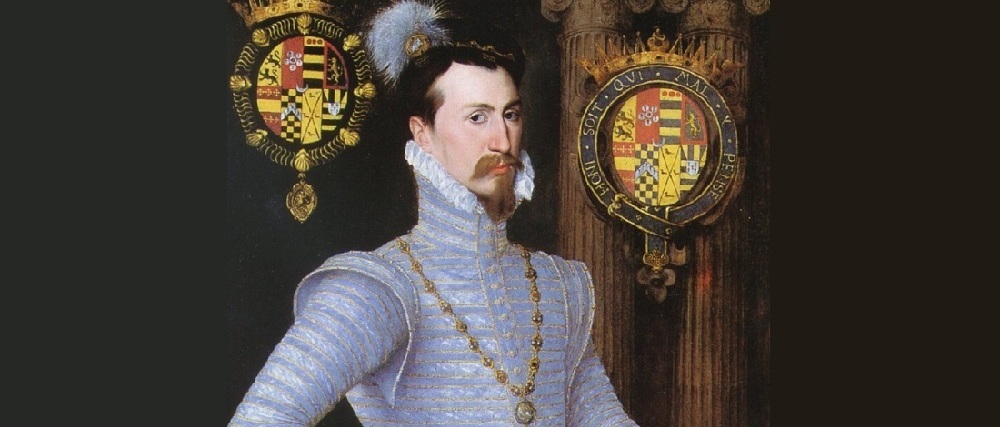Robert Dudley, 1st Earl of Leicester
Posted on 5th February 2021
Robert Dudley was born on 24 June 1532, the fifth son of John Dudley, Duke of Northumberland and Jane Guildford.
His father is best remembered for marrying his son Guildford Dudley to Lady Jane Grey and then placing her on the throne of England, although only for nine days, which resulted in John Dudley being executed in August 1553.
Robert Dudley had assisted his father by leading three hundred troops against Mary Tudor, later to become Mary I, however his army was defeated and he was imprisoned in the Tower of London and condemned to death, although he was later released in 1554.
While in the Tower of London, Dudley spent time with Marys half-sister Elizabeth who was also imprisoned at the same time. He had known Elizabeth since his childhood and their friendship blossomed while in the tower, with a closeness that was to last a lifetime.
Mary I never trusted Dudley, always believing he would conspire against her. He was only permitted at court in the presence of Marys husband Philip II of Spain.
Following Marys death and Elizabeth acceding to the throne of England in November 1588, Dudley was rewarded for his friendship and devotion to Elizabeth by being appointed to the position of Master of the Horse which involved him having close attendance on the Queen. Later, in April 1559 he was elected a Knight of the Garter.
Dudley’s closeness to the Queen caused many whispers at court about the true nature of their relationship, especially as he was a married man and had been so since 1550. He courted many enemies that were unhappy with the prominence he held at court.
Many believed that Dudley was the true love of Elizabeth’s life and the only one she would ever contemplate marrying.
In September 1560 Amy, Robert Dudley’s wife died after an accidental fall from a flight of stairs. Rumours abounded that Dudley may have arranged the death of his wife, to free him to marry the Queen, however her death also put Elizabeth under suspicion, so it seemed less likely that she would ever succumb to his offers of marriage.
Although Elizabeth may have held deep affection for Dudley, he was very unpopular with her subjects at court and a marriage to him would have caused unrest and even civil war, however she still maintained a very close relationship with him, naming him a Privy Councillor and briefly Protector of the Realm when she herself had Smallpox and thought she might die.
In 1564 Elizabeth named Dudley as a possible suitor to Mary, Queen of Scots, but how serious a proposal this was nobody knows, but she did give him the title of Earl of Leicester, he though, refused to partake in the marriage.
In 1575 Dudley invited Elizabeth to his estate, Kenilworth Castle in Warwickshire for many days of entertainment in her honour, but this may just have been his final desperate attempt to tempt her into marriage.
When Dudley finally accepted that a marriage to Elizabeth would never take place, he courted and married Lettice Knollys, Countess of Essex, although he kept the marriage secret from the Queen, fearing her wrath.
In 1585 Dudley took command of an English army sent to the Netherlands to support the Dutch against Spanish rule. He then returned in 1587 and was involved in the execution of Mary, Queen of Scots.
In 1588, as the Spanish Armada neared, Dudley was appointed ‘Lieutenant and Captain-General of the Queen’s Armies’. He was with Elizabeth at Tilbury when she made her famous speech to the troop’s ‘The Tilbury Address’, but he was gravely ill at this time, probably with stomach cancer.
Dudley knew he was dying and while travelling to Derbyshire for his health, he died suddenly at Cornbury Park, Oxford on 4 September 1588, and is buried in the Beauchamp Chapel of the Collegiate Church of St Mary, Warwick.
Six days before his death, Dudley had written a note to Elizabeth, that has become known as ‘His Last Letter’ and which she kept locked away in her bedroom chamber, where it was found upon her death fifteen years later.
Tagged as: Junior Tudors
Share this post:





